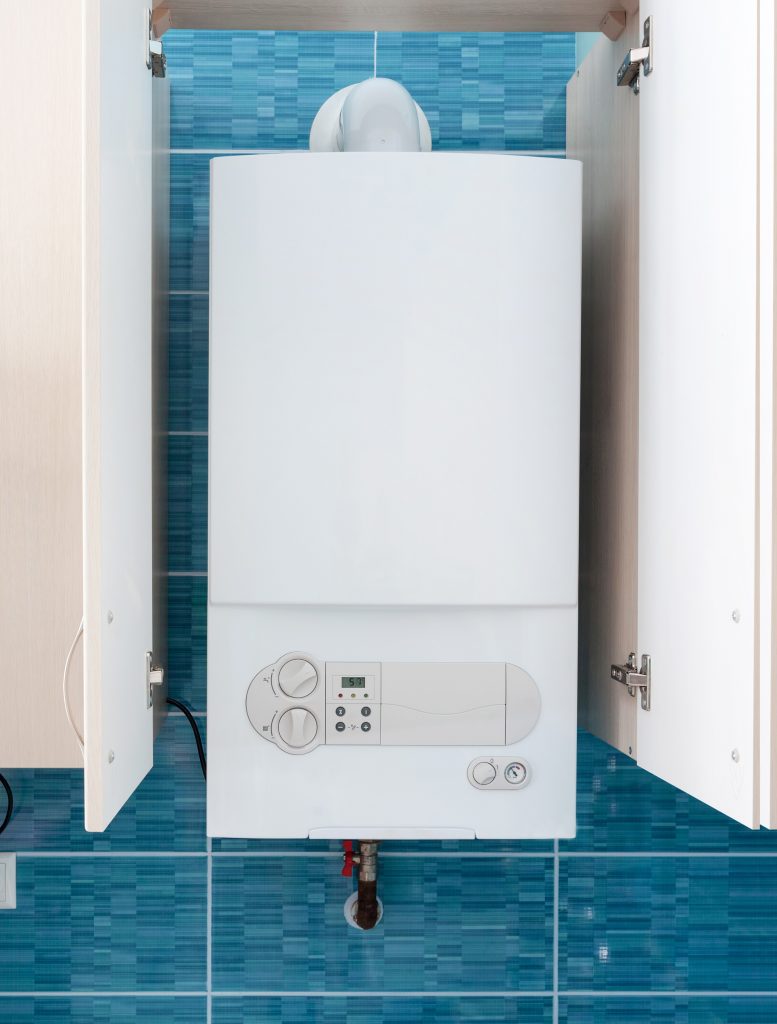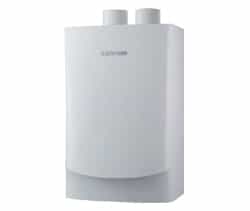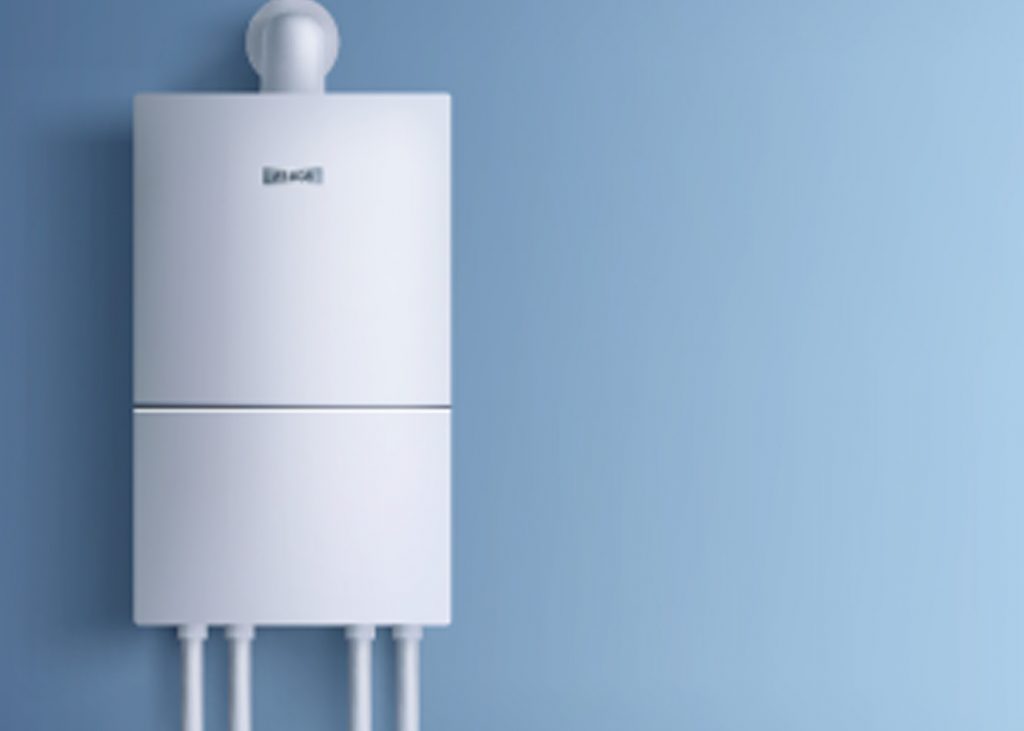Water Heater Replacement In Southern Maryland
At SMO Energy, we understand that hot water is more than a convenience — it is a necessity. From washing dishes to showering, your water heater plays a pivotal role in your daily activities.
Never Run Out of Hot Water With a Tankless Water Heater
Traditional hot water tanks store hot water and disperse it as needed. Eventually, the storage of hot water will run out, and the tank needs to heat new water. With tankless water heaters, there is no storage of water. Instead, the water is heated as it is needed.
Tankless water heaters can be fueled by either gas or electricity. They heat water directly, delivering a continuous flow, so you never run out of hot water.
For homes or businesses with high daily water demands, multiple tankless heaters can be installed. Using separate units for each major appliance or hot water outlet can increase energy efficiency, prolong the life of the equipment and lower operational costs.
While different benefits accompany each type of water heater, a tankless water heater ensures your home or business will never run out of hot water.
Schedule your FREE consultation now
Fill out the form below to have one of our Client Care representatives contact you with more information about finding the right air conditioner for your home, and to schedule your free in-home energy consultation.
Advantages and Disadvantages of Tankless Water Heaters
Aside from never running out of hot water, tankless water heaters offer several advantages:
- Energy efficiency: Hot water heating is one of the largest energy-related expenses, accounting for about 18% of utility bills. Because water heaters are so important to your home’s comfort, making sure your system performs at peak levels with as much efficiency as possible is vital. Tankless water heaters only run when an appliance calls for water or you open a faucet, so no energy is wasted. Homes that use 41 gallons or less of hot water per day see a 24 to 34% increase in energy efficiency when a tankless hot water heater is installed. Homes that use more water see energy efficiency increase by eight to 14%.
- Space-saving design: Tankless water heaters means there is no tank to take up additional space around your home. In many cases, you can install a tankless water heater in a closet, pantry or another out-of-the-way location.
- Long lifespan: When properly maintained, tankless water heaters often have a lifespan of at least 20 years — approximately twice that of conventional storage tanks.
Although many benefits come with tankless water heaters, there are a few things to consider before making the switch to tankless hot water:
- Higher initial cost: While tankless units save you more money in the long term, tankless water heating systems may cost more to purchase and install than their traditional counterparts.
- A small unit may not be enough: One small unit may not have the power to heat all of your home’s water at the same time. This could be problematic in homes with dishwashers and multiple bathrooms. You may need to install a larger tankless water heating system, or put in more than one small unit.
Your Water Heater Questions, Answered
Below you will find answers to some questions we are often asked about water heaters. If you do not see your question listed here, give us a call at 1-888-222-3720. We are happy to answer any questions you have.
Traditional storage tank water heaters are also known as atmospheric or conventional water heaters. The units both store and heat water inside of a large, insulated tank, usually made of steel. As you use hot water, the tank registers this and creates more.
Tankless water heaters — also called demand-type or instantaneous water heaters — do not store hot water. Instead, when a faucet is turned on, a gas burner or electric element heats the water as needed.
Most jurisdictions require you have a permit before installing a water heater due to changing codes and various safety hazards associated with the installation process. In some cases, you may need two separate permits: an electrical permit and a plumbing permit. These permits are usually not difficult to obtain. SMO Energy is happy to handle the permit process for you.
Please remember, a licensed technician with the proper training, experience and knowledge is the only way to ensure your water heater is installed correctly and safely and with the proper permits.
A heat pump water heater uses electricity to move heat rather than generate it. Many heat pump HVAC units are dual purpose: They can heat your home and your water. It takes less energy to move heat than it does to generate it. Therefore, heat pump water heaters are more energy-efficient.
Gas water heaters use either natural gas or propane to heat water. For gas water heaters to function, their pilot light must remain lit. Compared to electric water heaters, gas water heaters typically have a quicker recovery rate as hot water depletes. Due to potential hazards, proper ventilation is crucial when using a gas water heater.
R-value refers to the measure of thermal resistance regarding insulation. A high R-value indicates a high level of insulation effectiveness. Tanked water heaters rely on proper insulation to keep water heated while in storage. There are several ways to boost R-value, including the use of water heater insulation blankets.
If your water heater is not working, it may not always mean you need to replace the unit. If your water is too cold, too hot, is taking a long time to heat or leaks, it could mean a few minor repairs are in order. If these problems worsen or persist or are accompanied by other symptoms, it may be time to think about replacement. If you begin noticing these problems, we recommend calling a certified technician to look at your water heater as soon as possible.
Not always. Sometimes a leak can be repaired easily by a technician. Other times, a leak can be indicative of a more significant problem with your unit. The first step is to identify whether the water you see is indeed a leak or just condensation. If you have found a puddle of water, inspect your unit for any dripping or rust. Dry the puddle and monitor it closely. If water continues to pool, a leak is likely.
In the event of a leak, contact a reputable water heater repair and replacement company. If left ignored, leaks could turn into more significant or costly problems. Water damage to your home can be a significant cost to repair, but can be avoided by maintaining your tank and having it assessed by a professional when needed. Trained technicians will assess the situation and determine whether your leak is cause for concern.
Although it is very uncommon for a properly maintained water tank to explode, some circumstances can lead to a potentially dangerous eruption. Three causes for hot water tank explosions are:
- Sediment buildup: If your water is brown or dirty, this could be a sign of sediment buildup inside your tank. Sediment can form from hard water as it is held in storage. Regular maintenance keeps your tank clear of buildup.
- Gas leak: If using a gas water tank, there is the possibility of a gas leak if valves become loose or are improperly installed. In addition to explosions, gas leaks can also be hazardous to the health of your family.
- Too much pressure: Pressure buildup happens in your hot water tank if the temperature and pressure relief valve malfunctions. This valve is responsible for releasing excess pressure buildup and should be checked regularly.
If your water heater is leaking from the bottom element, it could be due to a leaking drain or pressure relief valve or a leaking tank. Inspect your water heater’s valves and be sure they are tight. If the problem persists, you may need a valve or tank replacement.
A water softener itself does not typically cause low water pressure, but blockage can occur if your water softener’s resins need replacing. A plumber can help you identify whether your low water pressure is a result of softener resins or a problem with your tank.
Signs You May Need to Replace Your Water Heater
Water heaters should be professionally serviced at least once a year. Regular and preventative maintenance is key to avoiding costly repairs and maintaining optimal levels of performance. Some indicators that your water heater may need replacing are:
- Age of the unit: How old is your water heater? Tanked water heaters have an average lifespan of about eight to 10 years. Tankless heaters usually last up to 20 years. If your water heater is at least 10 years old, it might be time for an upgrade.
- Unusual behavior: Unusual sounds are an indication that something is wrong with your water heater. Rattling, popping and knocking noises are not typical. Additionally, strong smells of sulfur or rotten eggs are signs of a possible infection or buildup. Should you notice anything out of the ordinary, give us a call and we will send a skilled technician your way.
- Leaks: If your unit continues to leak even after valve replacement or repair, it may be a sign that your tank needs replaced.
- Warm water: Is your water having difficulty reaching a hot temperature? If your water heater is putting out warm — rather than hot — water, something could be wrong with your thermostat or heating element. Warm water could also indicate that your water heater is not large enough.
- Frequent repairs: If you have had to call a technician to fix your water heater several times over the past few years, it may be a good idea to replace your unit. Doing so will reduce costs and frustrations.


How to Choose a Water Heater
There are three factors to keep in mind when you choose a water heater:
- Budget: Your budget should factor in initial purchase and installation costs as well as the cost of ongoing maintenance and energy. Although tankless water heaters cost less in terms of energy used and maintenance needs, the initial cost is typically higher than tanked heaters. Tanked heaters, though more affordable to purchase and install, do not last as long as tankless heaters and are not as energy-efficient. If choosing between a gas or heat pump water heater, evaluate the cost of electric compared to the cost of fuel.
- Fuel source: If using a gas-powered water heater, consider the availability of fuel. Not all areas have access to natural gas. If that is the case, you will need to use propane.
- Size: How much space do you have to work with inside your home or business? Will a traditional tanked water heater fit? If not, a tankless water heater is a great option. When deciding the size of your water heater, take into account how many sources it will need to heat at once. For example, tankless water heaters may not have sufficient energy to heat water for a shower and a dishwasher at the same time. A larger water heater — or multiple small units — may be a better fit.
If you are still unsure about which type of water heater or heat source is the best fit for your home or business, SMO Energy can help.
Limited Time Deals On Lennox Equipment
From July 8th – August 16th, SMO Energy is offering the following rebate and financing options for Lennox equipment.
Higher Rebate “OR” Financing: Offering rebates up to $1,500 on the Ultimate Comfort System™ OR offering Qualified Buyers no payments, no interest for 12 months when financing a new Lennox® system.
Moderate Rebate “AND” Financing: Offering rebates up to $1,200 on the Ultimate Comfort System™ AND offering Qualified Buyers no payments, no interest for 12 months when financing a new Lennox® system.
Why Choose SMO Energy For Your Water Heater Replacement?
If you have decided to make the switch to a tankless water heater or want to replace your existing unit, contact SMO Energy today to schedule your free consultation. Our skilled technicians have years of experience in water heater installation, replacement and maintenance. When you partner with SMO Energy, you have access to:
- 24/7 emergency service: Should you have an emergency, one of our technicians are there to answer your call 24/7.
- No hidden fees: We operate on a transparent pricing model.
- Free monthly payment plan options: We offer several payment plan options, including 0% financing for well-qualified applicants.
- Onlineservices: You will have 24/7 online account access to manage your account, schedule heating fuel deliveries and service, calculate delivery costs, view current heating oil prices in Maryland and update your account information.
- Live client care representatives: Give us a call at any time, day or night. Our team is here for you.
In addition to water heater installation, replacement and maintenance, SMO Energy also offers the following services:
- Heating oil and propane delivery: SMO Energy provides both automatic and scheduled heating oil and propane delivery service. Our large delivery fleet means we can also offer same-day and next-day delivery service for some businesses.
- Equipment: In addition to water heaters, we offer air conditioners, boilers, ductless mini-split systems, heat pumps, standby generators and other equipment.
- Energy consultation: If you are concerned about your energy costs, SMO Energy offers an energy consultation where our technicians will assess your home or business’ heating or cooling service needs.
- HVAC maintenance and repair: Our expertly trained technicians can handle the installation, maintenance and repair of your home or business HVAC system.

Water Heater Inspection and Maintenance in Maryland
We are proud to service the following areas in Southern Maryland:
- St. Mary's County
- Anne Arundel County
- Prince George's County
- Charles County
- Calvert County
Get Your Endless Supply of Hot Water
With SMO Energy, you can always count on us for fast, quality and reliable service. Give us a call today to schedule a consultation!
We provide FREE in-home Energy Consultations to evaluate your current system and help you choose the best water heater for your home.
